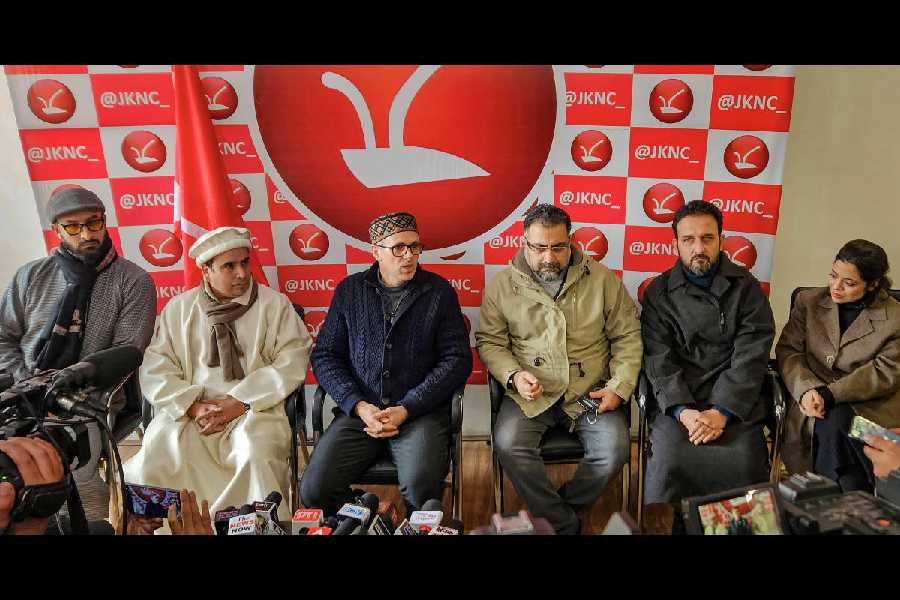Former Jammu and Kashmir chief minister Omar Abdullah on Wednesday wondered if India was a mother of democracy, why that mother was getting murdered in the Union Territory; betraying frustration over the alleged central government move to finish all democratic institutions here one after the other.
Omar also asked the Election Commission of India to hang its head in shame for its alleged failure to conduct Assembly elections and instead getting direction to do so from the Supreme Court.
“One after the other, starting with Assembly, you finished with the urban locals and now panchayats here,” Omar told a media conference in Srinagar.
The UT almost lost the last vestige of democracy on Tuesday after the tenure of nearly 28,000 representatives in panchayats and block development councils (BDCs) came to an end.
The only people’s representatives that remain in office now are a few dozen members in 20 district development councils — the third tier of the panchayati raj system, whose term ends in 2026 — and the five Lok Sabha MPs.
Jammu and Kashmir has no Assembly since 2018. The term of the municipalities, another major grassroots institution, ended last year.
“As the proverbial saying goes, India is the mother of democracy. But I do not know why we like to kill the mother with our own hands in Jammu and Kashmir,” said Omar, back from his sabbatical announced last month over twin court blows on “professional” and “personal” fronts.
Omar had said he was going “off-grid” following two disappointing days — a reference to the December 11 SC verdict upholding the scrapping of Article 370 and the Delhi High Court decision the next day dismissing his plea seeking divorce from his estranged wife.
The former chief minister took exception to the State Election Commission’s suggestion that panchayat and municipal elections will follow a fresh delimitation exercise — in addition to some related issues.
“I said repeatedly in my speeches that if there was a question of delimitation for urban local bodies, you could have done that well in advance. Why was the decision of delimitation taken after the term of elected bodies ended? There was no answer,” he said.
“Now your panchayats have ended. You knew in advance that panchayats last for five years. Could you not have started the election process after four-and-a-half years? If there was a question of delimitation in panchayats as well, you could have done that six months ago.”
Omar said holding Parliament elections in Jammu and Kashmir has become a
compulsion for the Centre, apparently because it is a pan-India exercise where the Union Territory cannot be excluded.
“It is regrettable that in the case of the Assembly election too, the Supreme Court had to issue directions (during Article 370 verdict). I say the Election Commission should hang its head in shame. They should apologise before people that a decision they were supposed to announce was being done through the Supreme Court,” he said.
“The decision to hold an Assembly election is supposed to be taken by the Election Commission and the Centre. But both failed to do that. So the Supreme Court had to announce that elections should be held here before September 31.”
State election commissioner B.R. Sharma said they were launching a special campaign for the annual summary revision of panchayat electoral rolls in Jammu and Kashmir. He said revised electoral rolls will be published on February 26. However, he didn’t announce any dates for panchayat or municipal elections.











